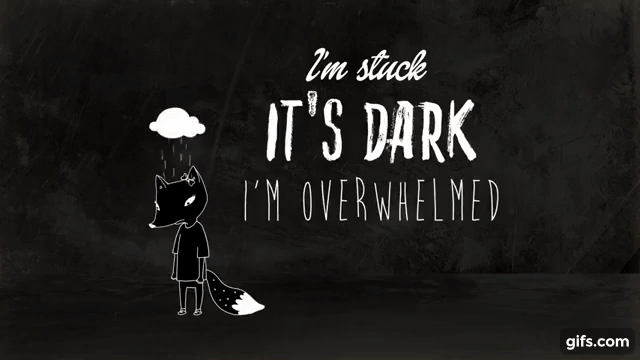
~2 minute read
Two of the most common symptoms of depression include feeling tired and isolated. There are many factors that contribute to these symptoms of depression. Changes in brain chemistry, sleep patterns, and motivation can all lead to lower energy levels, and negative self-talk and low self-esteem can lead to social isolation and feelings of loneliness.
Changes in your brain
Neurotransmitters are chemicals that tell your neurons what to do, and your neurons tell your brain and body what to feel and do. Serotonin, norepinephrine, and dopamine are three neurotransmitters that regulate your mood and energy levels, and the levels of these neurotransmitters are often reduced for people experiencing depression. Reduced levels of these neurotransmitters make it more difficult for your brain and body to experience motivation, energy, and pleasure.Sometimes stressful events cause a reduction in these levels (ex. Injury, loss of a loved one) and sometimes lower levels occur without a direct external cause. Similar to how our hormones change as we grow up, these changes in neurotransmitter levels aren’t something you can control or should feel responsible for.
Changes in your sleep patterns
It’s common for people who experience depression to have difficulty falling asleep, staying asleep, and feeling refreshed after waking up. Your circadian rhythm is your body’s internal clock that tells you when to be awake and when to fall asleep, and it’s often disrupted in people with depression. Additionally, fluctuations in levels of the neurotransmitter serotonin can also cause disruptions in your sleep patterns.
Changes in motivation levels
Depression makes it difficult to focus and feel motivated. Simple tasks like taking out the trash, getting ready for school, or chatting with your teammates before practice might feel overwhelming. “Brain fog” also makes it difficult to feel focused or to make decisions.
Self-talk
Negative feelings toward yourself can impact how you feel not only about yourself but also about others. Self-talk can become a negative feedback loop where the more you talk to yourself with negative thoughts, the more likely you are to avoid spending time with and listening to people who counter those negative thoughts. Isolation can lead you to believe that you are the things you tell yourself, when in reality you are not.
Self-esteem
It might feel tough to reach out to and spend time with friends and family when you aren’t feeling like yourself. Your self-esteem, similar to self-talk, responds to your environment and who you spend time with. If you are feeling bad about yourself, you’re more likely to spend more time alone rather than with family and friends, which gives you fewer opportunities to recognize all of the positive attributes you have.

Sometimes depression makes you feel like you’re too tired to do things or as though we’re better off alone, when what might actually be most helpful is to stay engaged in your activities and still hang out with friends. If you’re feeling lonely or low-energy, don’t blame yourself and remember that you won’t feel this way forever. There are resources, professionals, and people in your life who can help. Check out our guide on how to talk about your mental health with a family member or talk with a therapist in Galea’s network to help you with these feelings.



